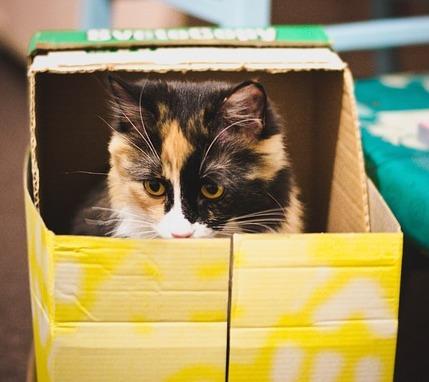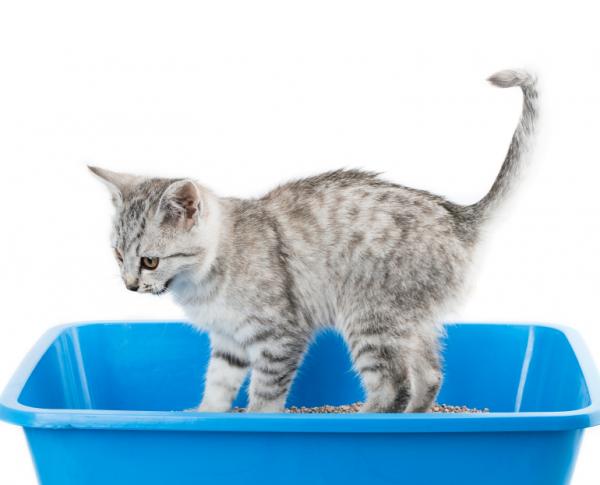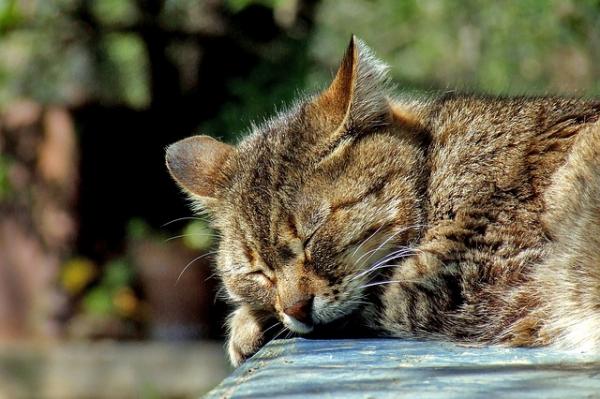Urine infection in cats – Symptoms, treatment and prevention

Urine infections, also known as diseases of the urinary tract (FLUTD), are one of the most common and uncomfortable groups of pathologies that a cat can suffer. There are several types of infections, such as cystitis (inflammation of the bladder), nephritis (inflammation of the kidneys) or urolithiasis (urinary stones), but most have the same symptoms.
As mentioned earlier, these conditions affect the feline bladder and urethra, and can occur in cats of any age but, above all, in adult animals that suffer from obesity, which are confined to very small spaces or that carry a dynamic emotional with many frights and few episodes of tranquility.
Let’s talk in this article about the urine infection in cats, its symptoms, treatment and how to prevent it.
How to know if my cat has a urine infection?
All parents of cats should be very informed about the symptoms of these conditions, it is very important to prevent and early treatment, because if a cat suffers from urine infection could not only be very painful for the animal, but potentially fatal.
Many cats suffer from repeated outbreaks, which generates a pattern that gets worse over time, but beware, because most cats do not show symptoms until the disease is very advanced. Therefore, it is important to monitor the behavior of your cat at the time of your needs and also observe the state of your urine.
Symptoms What can determine if your cat has urine infection includes the following aspects:
- It makes too much effort when urinating.
- Urine in small quantities.
- He can not contain himself and urinates out of his tray (very strange in them).
- Try to urinate more often than normal, which can sometimes be confused with the action of defecating.
- Cries when urinating, this behavior is totally out of the ordinary.
Additionally, it could present blood in the urine. Likewise, it will have the constant need to lick its parts to alleviate uncomfortable sensations, some present fever and weakness in the initial stages of the infection.

Treatment for urine infection in cats
As much as we think we know enough, we should never diagnose our cat ourselves, especially if it has a urinary tract infection. In the presence of any symptom discussed in the previous section, you must visit the vet so that he carries out all the necessary tests. Blood tests and urine samples fall into the type of tests, both to check if you have crystals, inflammatory cells, to check the status of urine and rule out other diseases.
The treatment for cat urine infection will vary depending on the pathology. If the cat has a problem of bacterial infection it should take antibiotics (These do not happen frequently). In the case of cystitis, treatment will begin by relieving pain by administering medications to relax and avoid obstructions in the urinary tract. Then, reduce stress with exercise and the administration of pheromones to help reduce anxiety levels. Finally, control the amount of urine, replacing the dry food with a slightly wet diet. For more information, do not miss our article in which we tell you everything you need to know about feline cystitis.
If the cat has blocked the urethra, the treatment will be surgical and practically urgent, because the urine is not flowing normally. It is possible that your pet stays hospitalized for several days, since the veterinarian must give him intravenous medications and monitor his progress. The same with the calculations, which could well be a matter of operation (depending on the type) or if it is not so advanced could be cured with a simple change of diet and lifestyle habits.
Remember to end the treatment to avoid future relapses, especially if the cat is prone to this type of urine infections.

How to prevent the infection of urine in cats?
The veterinarian’s support should not only be when the cat is sick or has an emergia. Try to have a fluent communication with him about your cat, and ask him which is the most appropriate type of diet for the health of your pet. Remember that we are the ones who eat. In this sense, we recommend you consult our article in which we talk about proper nutrition for cats.
Water is basic to clean and purify the body. You must educate and accustom your cat to always drink water. If your cat does not drink water, consult our article and solve the problem. In the same way it happens with the habit of urinating, this is one of the few ways that there is to expel the toxins from the body, so it is important that your cat does it frequently and that at the time of doing so he finds his box of sand in the best conditions of hygiene and cleanliness. This will make you feel more at ease.
Cats are routine animals, it will always be positive for your health to minimize sudden changes in routine that can cause stress, which can then trigger a urinary tract infection.
Make every effort to give a quiet life to your cat, you will see that you will have a healthy and happy pet for many years.

Why does my cat have an infection?
Urinary infections, obstructions and inflammations are caused by the presence or not of blood or other foreign agents in the urinary tract. These pathologies can be caused by many factors and / or in turn be the manifestation of a disease already developed in the animal’s organism. Some of the causes can be:
As we mentioned at the beginning of the article, any factor that puts the cat in a state of stress, can predispose the development of this type of diseases. Situations of this type could be a sudden change of home, the arrival of a new member to the family, absence of his human companion and presence of strangers.
Sedentary and obesity can also cause infections of the urinary tract, as all internal processes slow down and the body is not as well trained to eliminate all the waste that is being consumed. Urethral obstruction in males occurs more frequently in young adults who live in very closed spaces, where they have few opportunities to exercise.
A low acid and uncontrolled pH in cat urine can increase the appearance of magnesium and raise its levels to a point not suitable, which can lead to a later formation of magnesium phosphate crystals that can be precipitated in a harmful way in the urine and then cause urolithiasis (urinary stones) All this is caused, among other things, by a poor diet, such as diets low in digestibility and without mineral control
This article is merely informative, in .com we do not have the faculty to prescribe veterinary treatments or make any kind of diagnosis. We invite you to take your pet to the veterinarian in case of any type of condition or discomfort.
If you want to read more articles similar to Urine infection in cats – Symptoms, treatment and prevention, we recommend that you enter in our section of Infectious diseases.


